Welcome to our regular online bulletin bringing you news about the network and the wider world of stroke and neurorehabilitation |
| |
|
Network news
It's been a while since we last shared an update, but hopefully you will have read seen our achievements in our Annual Report which we published in July (more in the next section).
 In terms of the team, our Facilitator Hannah gave birth to the Evelyn in April. Mother and baby continue to do well and we look forward to welcoming Hannah back in the Spring next year. In terms of the team, our Facilitator Hannah gave birth to the Evelyn in April. Mother and baby continue to do well and we look forward to welcoming Hannah back in the Spring next year.
In June, we bid farewell to Chris Hyde as our Community Lead. 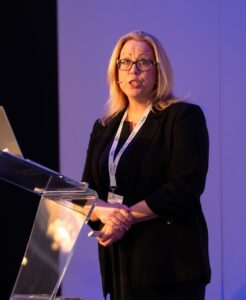 During her three years with us, Chris oversaw the updating of our community models and associated Key Performance Indicators, and helped lead a wide variety of projects as well as supporting national work led by NHS England. During her three years with us, Chris oversaw the updating of our community models and associated Key Performance Indicators, and helped lead a wide variety of projects as well as supporting national work led by NHS England.
From July, Chris will be our new Clinical Associate for Community Neurorehabilitation Transformation. In her new role, she will focus on the strategic development of services by supporting the NHS England Neurology programme as well as local community team transformation. Chris joins our small team of Clinical Associates who are not remunerated but generously provide expertise across a range of topics. |
| |
|
Network Annual Report published
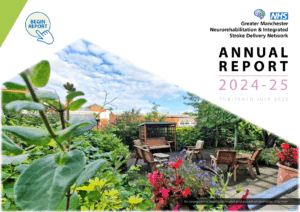 We are delighted to share our Annual Report for the 2024/25 year which also celebrates our 10th birthday! We are delighted to share our Annual Report for the 2024/25 year which also celebrates our 10th birthday!
We started life in 2015 as two sister networks that were merged in 2021 to bring together both clinical pathways, and we have grown in stature and output ever since! We have achieved much over the past decade by working together, with much more to come in future. Thank you to everyone who has worked with us and contributed to everything we have achieved in the past year and also the last 10 years – it is always a team effort!
The report is a celebration of the past year’s achievements with a focus on demonstrating the impact of what we do. Highlights include:
- Influencing NHS England policy for stroke and neurorehabilitation services
- Network website viewed 30,473 times by 6,557 users
- Extension of ambulance pre-alert window reduced time to scan for stroke patients eligible for intervention by 21-35%
- Greater access to advanced imaging has identified more candidates for intervention whilst excluding stroke mimics
- Patient Pass has reduced telephone calls by 67% and inappropriate transfers and admissions by 81% at Salford Royal HASU
- Comprehensive audit of the National Clinical Guideline for Stroke by all inpatient and community teams
- ‘A’ rated care provided by all HASUs with 3/5 DSCs rated ‘A’ or ‘B’
- Our stroke units outperform nationally in most indicators of care – HASUs scan patients twice as quickly on arrival
- Launch of regional Neurogenic Bladder & Bowel service – first of its kind in the country
- Toolkits published to support service improvement in FND, MND and spasticity
- >80 clinicians attended ACT training to enhance emotional wellbeing support
- Comprehensive training including 2 webinars and 8 in person events with our YouTube training videos viewed 8,242 times for >905 hours
- Step change in patient and carer involvement including increased diversity in the network’s group, launch of a toolkit and report
We are also featured in the forthcoming Strategic Clinical Network's Impact Report which we will share when available. |
| |
|
Pathway updates
Motor Neurone Disease (MND) emotional support
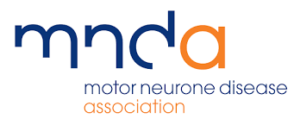 Our MND Association funded project is progressing well with the team currently mapping existing emotional support provision. Surveys have been distributed to teams supporting people with MND and their families. Thank you to those who have responded - we have a near-complete dataset which we will start to analyse soon. The project team are working on gaining governance permission to collect information from patients and families which is taking a little time! They are also exploring suitable platforms to share information and resources. Our MND Association funded project is progressing well with the team currently mapping existing emotional support provision. Surveys have been distributed to teams supporting people with MND and their families. Thank you to those who have responded - we have a near-complete dataset which we will start to analyse soon. The project team are working on gaining governance permission to collect information from patients and families which is taking a little time! They are also exploring suitable platforms to share information and resources.
Increasing the intensity & frequency of rehabilitation
Our Rehabilitation Subgroup continues to support the sharing of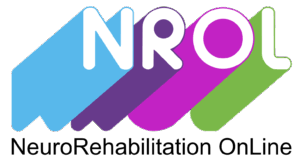 initiatives and resources. Recently, they heard from NeuroRehabilitation OnLine (NROL) developed by clinicians in Lancashire & South Cumbria. NROL is a group-based telerehabilitation programme involving multiple clinical teams delivering a programme of sessions. We are gathering information to help decide whether to explore implementation in our region. initiatives and resources. Recently, they heard from NeuroRehabilitation OnLine (NROL) developed by clinicians in Lancashire & South Cumbria. NROL is a group-based telerehabilitation programme involving multiple clinical teams delivering a programme of sessions. We are gathering information to help decide whether to explore implementation in our region.
Spasticity management
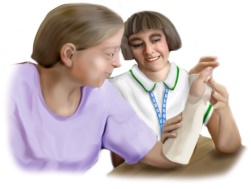 We are currently scoping stroke and neuro spasticity management in our inpatient and community settings. This will enable us to: We are currently scoping stroke and neuro spasticity management in our inpatient and community settings. This will enable us to:
- Better understand how services are setup in Greater Manchester and current demand for services
- Impacts on the patient journey
Our local teams are participating in an audit with two elements:
- Initial scoping providing an overview of their service setup and organisation - this will provide baseline data, with results shortly available for analysis
- Recording caseload demand over a period of time. Inpatient and community teams are participating across slightly different time windows to ensure we capture sufficient patient journeys
Multiple Sclerosis (MS) pathway development
 Our MS Steering Group continues to meet regularly. Our regional benchmarking exercise against national guidelines and recommendations, along with group discussions, highlighted key areas for improvement: Our MS Steering Group continues to meet regularly. Our regional benchmarking exercise against national guidelines and recommendations, along with group discussions, highlighted key areas for improvement:
- Patient information
- Information sharing
- Primary care referrals
- Patient and public involvement
- Charity services
- Carer support
Oral suctioning
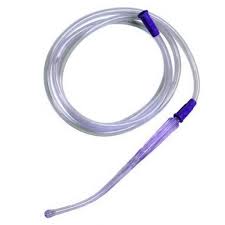 This was identified as a priority area through the MND pathway development project. Significant variation was found in how equipment and consumables are procured, and in how staff, patients, and carers are trained in their use. Most areas reported challenges in these processes. In the last 6 months, the network has: This was identified as a priority area through the MND pathway development project. Significant variation was found in how equipment and consumables are procured, and in how staff, patients, and carers are trained in their use. Most areas reported challenges in these processes. In the last 6 months, the network has:
- Collected feedback from teams and gathered information from recent pathway development work done in Oldham
- Presented findings to the Integrated Care Board (ICB), resulting in agreement for a Greater Manchester-wide approach
- Developed guidelines for creating a Standard Operating Procedure and collated resources gathered through scoping
- Presented the guidelines and resources to the ICB and proposed that each locality use these to develop a localised procedure
The network will attend a follow-up forum in six months to receive updates from each locality and we anticipate a reduction in the variation currently experienced by patients. |
| |
|
Speakeasy at 40: Four decades of transformative support for aphasia
This year, Speakeasy celebrates 40 years of dedicated work with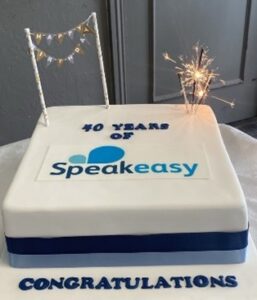 people living with aphasia and their carers. Founded in the early 1980s in Bury, the organisation began as a bold initiative by speech and language therapist Stephanie Holland who pioneered a new model—combining professional expertise with trained volunteer engagement—to foster genuine inclusion within communities. people living with aphasia and their carers. Founded in the early 1980s in Bury, the organisation began as a bold initiative by speech and language therapist Stephanie Holland who pioneered a new model—combining professional expertise with trained volunteer engagement—to foster genuine inclusion within communities.
Stephanie’s innovative spirit was unwavering—even establishing the UK’s first voluntary sector computer suite for aphasia using recycled tech. Her ground-breaking approach laid the foundation for Speakeasy as a charity with impact.
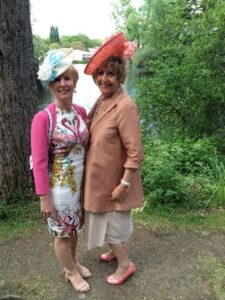 In later years, Gill Pearl (pictured far left) took the helm, revitalising Speakeasy’s ethos and extending its reach. As a published researcher and passionate advocate, Gill advanced the charity’s model through user involvement in research, accessible information design, and the belief that activity is therapeutic when delivered meaningfully. In later years, Gill Pearl (pictured far left) took the helm, revitalising Speakeasy’s ethos and extending its reach. As a published researcher and passionate advocate, Gill advanced the charity’s model through user involvement in research, accessible information design, and the belief that activity is therapeutic when delivered meaningfully.
Over four decades, Speakeasy has expanded its support across Greater Manchester—from its Ramsbottom base to outreach groups and online services. Programmes include group sessions, peer-led activities, one-to-one tech assistance, carer-specific pathways, and digital therapy tools. Whether face-to-face or virtual, the emphasis remains on long term, personalised, goal-driven activity that enhances communication, confidence, and social connection.
Speakeasy’s contribution has not gone unnoticed with a plethora of awards including one for Gill Pearl at our recent Annual Conference. Its priorities for its 40th year are fundraising and increasing awareness of Speakeasy services and of aphasia. Visit www.speakeasy-aphasia.org.uk or follow @SpeakeasyAphasia on X to stay informed and connected. |
| |
|
Network Annual Conference
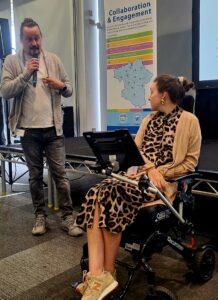
We celebrated our 10th anniversary in style at our Annual Conference in June, with over 130 professionals attending the event. One of the highlights was Anna and Martyn (pictured left) sharing their experience of living with MND. Their positivity was inspirational and their experiences of health and social care reminded us why we are working so hard to improve our services.
The breaks between talks provided the opportunity to view posters and find out more about our local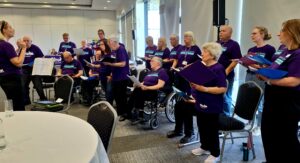 charities, and commercial products. After lunch, we were treated to songs by the NW Community Stroke Choir. charities, and commercial products. After lunch, we were treated to songs by the NW Community Stroke Choir.
The afternoon featured workshops and more presentations. 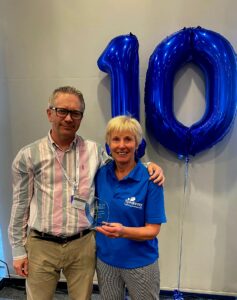 It was then time to present the Chadwick Award for outstanding contribution to neurorehabilitation services to Susan Bannister, lead for Bolton’s Long Term Condition team. Professor Craig Smith presented Gill Pearl, CEO of Speakeasy, with the Tyrrell Award for stroke care (pictured left). Our Manager gave the prizes for the poster competition to some very worthy winners. You can download the presentations and posters here: Morning talks. Afternoon talks. Workshops. Posters. It was then time to present the Chadwick Award for outstanding contribution to neurorehabilitation services to Susan Bannister, lead for Bolton’s Long Term Condition team. Professor Craig Smith presented Gill Pearl, CEO of Speakeasy, with the Tyrrell Award for stroke care (pictured left). Our Manager gave the prizes for the poster competition to some very worthy winners. You can download the presentations and posters here: Morning talks. Afternoon talks. Workshops. Posters. |
| |
|
Help patients access energy support
ECO4 Flex is a national scheme aimed at improving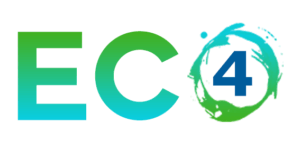 energy efficiency in low-income and clinically vulnerable households. It provides a range of fully funded home energy improvements at no cost to patients. Measures include insulation, ventilation improvements, first-time central heating installation, boiler upgrades, and solar panel installation. energy efficiency in low-income and clinically vulnerable households. It provides a range of fully funded home energy improvements at no cost to patients. Measures include insulation, ventilation improvements, first-time central heating installation, boiler upgrades, and solar panel installation.
To be eligible, the patient’s property must be owner-occupied or privately rented, and meets the necessary energy performance criteria (Energy Performance Certificate rating of E or below). Social housing tenants are not eligible. The scheme enables NHS healthcare professionals to refer residents with medical conditions which make them more vulnerable to the effects of living in a cold home, including cardiovascular conditions, respiratory disease, limited mobility, and immunosuppression.
ECO4 Flex is being rolled out across all 10 Greater Manchester localities and we are being encouraged to identify patients who may benefit. Information on healthcare and self referral is on the GMCA website. |
| |
|
Advancing practice in stroke and neurorehabilitation
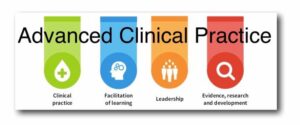
For the past few years, we have led work to explore and embed Advanced Clinical Practice (ACP) roles within our stroke and neurorehabilitation services. This began by scoping the existing workforce and identifying gaps in senior clinical decision-making, specialist roles, and succession planning. With the publication of the NHS Long Term Workforce Plan reinforcing the need to grow and evolve the workforce, ACP development became a key focus for strengthening care pathways.
To support services across the region, a webinar and dedicated resource page were developed. These tools bring together everything teams need to plan, fund, and implement ACP roles effectively. The webinar featured a panel of ACPs who shared real-world experiences of developing their roles, shaping weekly work plans, and navigating implementation challenges.
Now, as this phase of the project concludes, the foundations are firmly in place. The community of practice, resource hub, and supporting documents created will continue to help our services shape a skilled, sustainable, advanced clinical workforce across stroke and neurorehabilitation care. |
| |
|
Training and education
We offer a wide programme of face to face and online events, those hyper linked are open for bookings. You can view all our previously recorded webinars on our YouTube channel, with details of how to access restricted content at the bottom in the archive section. Our training website pages are also a useful source of information and include our events, Elearning packages, online resources and course information.
Introductory level
Experienced level
We are finalising our events for the rest of 2025 - details are shared on our website.
- Fatigue management - September tbc
- OT Cognitive training (webinar) - September tbc
- Supporting Patients with Difficult Emotions Using an ACT-Informed Approach - 11th November 25 - Face to face training at Walkden Gateway, Salford. Half day session via nomination by your Team Lead
- Visual Rehabilitation - December (date tbc) Webinar
Other events
Stroke-related Visual Impairment in Clinical Practice is being held on 1st September. One-day event is aimed at clinicians interested in research-led evidence-based clinical practice for stroke-related visual impairment: Flyer Stroke-Vision CPD course
Coloplast are hosting a free education day in Leeds: MS Masterclass - 10th September |
| |
|
Bolton Neuro Voices
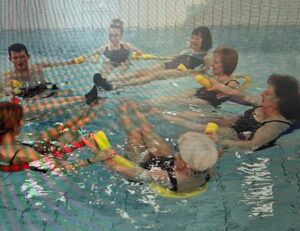
Since 2012, the charity has been supporting people with neurological conditions to participate in hydrotherapy or wheelchair-based exercise under the supervision of a qualified physiotherapist. Their hydrotherapy service is based at the Sir Jason Kenny Centre in Bolton and uses the specialist hydrotherapy pool. They also run a gentle exercise class every Monday morning. They provide:
- A pre-assessment of potential new members via 5 x 30 min group sessions to understand their abilities and to ensure that they can participate safely in the hydrotherapy
- Physiotherapy provided through Bolton University: Bolton Neuro Voices | University of Greater Manchester
Hydrotherapy supports people with neurological conditions with mobility, balance, pain, and social isolation. The uplift within the water alleviates pressure on joints and muscles that do not normally experience a full range of movement and is of particular benefit when people are unable to do other types of exercises that requires muscle strength. The exercise is gentle and allows participants to improve heart function and circulation without putting stress on the body. Attendees report improvements in mobility, mental wellbeing, sleep and reduced social exclusion.
The organisation recently ran a new assessment course and are planning another in October. Contact boltonneurovoices@gmail.com for details on signing up. |
| |
|
Stroke Association news
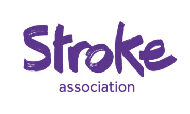 The charity are focused on the power of connection and believe that by uniting voices and efforts, we can truly tackle the devastating impact of stroke. One exciting development is a new project in Stockport where they are collaborating closely with local providers to improve access to vital support for stroke survivors of working age. This initiative ensures access to getting back to work support and vocational rehabilitation. Meanwhile, in Tameside, they have been strengthening their networks by connecting directly with commissioners. The charity are focused on the power of connection and believe that by uniting voices and efforts, we can truly tackle the devastating impact of stroke. One exciting development is a new project in Stockport where they are collaborating closely with local providers to improve access to vital support for stroke survivors of working age. This initiative ensures access to getting back to work support and vocational rehabilitation. Meanwhile, in Tameside, they have been strengthening their networks by connecting directly with commissioners.
The theme of local connection and collaborative effort was central to a recent two day face to face meeting the Stroke Association held to bring front line services together. Their CEO, Juliet Bouverie highlighted the significant challenges facing the stroke community, emphasizing that local working and strong neighbourhood connections are more crucial than ever.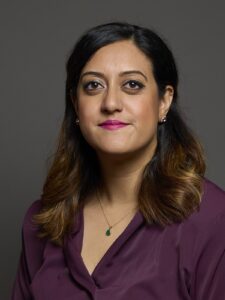 This approach is fundamental to working towards the government's ambitious 10-year health plan. This approach is fundamental to working towards the government's ambitious 10-year health plan.
Their commitment to advocacy was clearly demonstrated in a recent, impactful meeting with Kirith Entwistle (pictured right), MP for Bolton East who heard about the support they offer from local manager Fiona Davison as well a stroke survivor living with aphasia. |
| |
|
Stroke Rehabilitation Group update
Early summer has been a fruitful period with: NIHR funding bids submitted and awarded subject to DHSC sign off; three doctoral vivas passed; two PhD graduations and a shortlisted application for a BHF CRE PhD studentship.
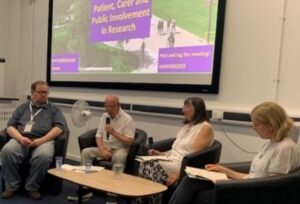 Audrey Bowen and Havva Sumeyye Eroglu co-hosted a successful WFNR OPSYRIS meeting at The University of Manchester with an excellent lived experience Q&A session and invited presentations. Prizes have been won by Lauren Lucas (OPSYRIS Rising Star Award) and three poster prizes at local and national meetings. Many papers have been accepted (see below). Audrey Bowen and Havva Sumeyye Eroglu co-hosted a successful WFNR OPSYRIS meeting at The University of Manchester with an excellent lived experience Q&A session and invited presentations. Prizes have been won by Lauren Lucas (OPSYRIS Rising Star Award) and three poster prizes at local and national meetings. Many papers have been accepted (see below).
In July, there was a stage 1 bid to a major funding collaboration for a UK-Australia Life after Stroke Platform “Clinical and cost-effectiveness of interventions to reduce post-stroke emotional difficulties: a randomised multi-arm multi-stage (MAMS) adaptive platform trial”.
Publications:
Hazelton C, Harding S, Angilley J, Palombi A, Bowen A, Clatworthy P. Occupational Therapists’ perspectives of implementing a new rehabilitation intervention for visual field loss due to stroke. NIHR Open Research
Kulsum P, Holland E-J, Watkins CL, Bowen A, Read J, Thomas S, Roberts T, Lightbody CE. Exploring staff perspectives on implementing an intervention package for post-stroke psychological support: a qualitative study. Psychology International (in press)
Lucas L, Peters S, Cotterill S, Bowen A. How important are working relationships for stroke self-management? A qualitative study with healthcare professionals in community stroke teams. Clinical Rehabilitation (in press)
Radford K… HTA NIHR136214 RA3: Development and description of Early Stroke Specialist Vocational Rehabilitation delivered in the RETAKE trial (in press)
Radford K… HTA NIHR136217 Synopsis: Early stroke specialist vocational rehabilitation for return to work after stroke: a synopsis from the RETAKE RCT (in press)
Trusson D, Powers K, Radford K, Bowen A, Craven K, Farrin A, McKevitt C, Murray J, Phillips J, Stevens J and Clarke D (2025) Exploring stroke survivor and employer experiences of disruption within the RETurn to work After stroKE (RETAKE) trial during the COVID-19 pandemic. Frontiers in Sociology 2025; 10:1434353 doi: 10.3389/fsoc.2025.1434353
Mitchell C, El Kouaissi S, Duncan-Zaleski M, Bowen A, Conroy P, Whelan B-M, Wallace SJ, Cheyne J and Kirkham J. How do we measure dysarthria after stroke? A Systematic review to guide the Core Outcome Set for Dysarthria. BMJ Open 2025;15:e099662. doi:10.1136/bmjopen-2025-099662
Lightbody CE, Patel K, Holland E-J, Sutton C, Brown C, Tishkovskaya S, Bowen A, Read J, Thomas S, Roberts T, Watkins CL. Accelerating the Delivery of Psychological Therapies After Stroke: A Feasibility Stepped-Wedge Cluster RCT. Healthcare 2025; 13, 824.
Harcourt B, Brown R, Bowen A. Informal caregiving following stroke: a qualitative exploration of carer self-identification, care-related language and support experiences. BMJ Open 2025; 15:e089582. doi:10.1136/bmjopen-2024-089582
Harcourt B, Brown R, Bowen A. Psychological aspects of caregiving after stroke: a systematic scoping review and thematic synthesis of theories. Neuropsychological Rehabilitation 2025;
Trusson D, Powers K, Radford K, Bowen A, Craven K, Holmes J, et al. Experiences of support to return to work after stroke: longitudinal case studies from RETAKE trial [published online ahead of print March 26 2025]. Health Technol Assess 2025.
Farrin A, Wright-Hughes A, Moreau L, Schofield H, Day F, Murden G, Green J, Bowen A, Kidd L, Bojke C. Forster A. & LEAP Collaborative. Developing a national platform for delivering efficient trials for people living with stroke: the Life after Stroke Platform (LEAP). NIHR Open Research 2025
Foote H, Bowen A, Cotterill S, Patchwood E. An online, group Acceptance and Commitment Therapy is acceptable to stroke survivors: A qualitative interview study. Neuropsychological Rehabilitation. 2025; |
| |
|
Stroke legend remembered
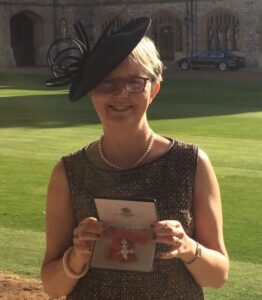 Our manager was honoured to speak at a symposium on the 19th June celebrating the life of Emeritus Professor Pippa Tyrrell and retired consultant in stroke medicine at Salford Royal. Pippa sadly passed away in January and was fondly remembered at the event by many former colleagues and friends. Our manager was honoured to speak at a symposium on the 19th June celebrating the life of Emeritus Professor Pippa Tyrrell and retired consultant in stroke medicine at Salford Royal. Pippa sadly passed away in January and was fondly remembered at the event by many former colleagues and friends.
After studying general medicine and neurology, Pippa completed her MD in dementia research and was appointed as the first consultant in stroke medicine at Salford Royal in 1995, where she set-up the first dedicated stroke service in Manchester. She was passionate about teaching and developed a thriving research portfolio, becoming the first Professor of stroke medicine at The University of Manchester. She also held numerous senior leadership roles and was awarded an MBE.
Many of you will have worked with Pippa over the years; she was a staunch supporter and great friend to the network who greatly influenced the centralised model of hyper acute care and continued to support improvements after implementation. Such was her influence both locally and nationally that we created an outstanding achievement award in her honour. was a staunch supporter and great friend to the network who greatly influenced the centralised model of hyper acute care and continued to support improvements after implementation. Such was her influence both locally and nationally that we created an outstanding achievement award in her honour.
The symposium reflected the huge influence Pippa had on stroke care, but also highlighted her warmth and compassion as a human being. You can watch the event here: Geoffrey Jefferson Brain Research Centre | Professor Pippa Tyrrell Stroke Symposium
|
| |
|